China Arts & Entertainment
Top 10 Overview of China’s Most Popular TV Dramas February 2019
The top scoring TV dramas in China of this moment, winter 2018/2019.
Published
5 years agoon
By
Gabi Verberg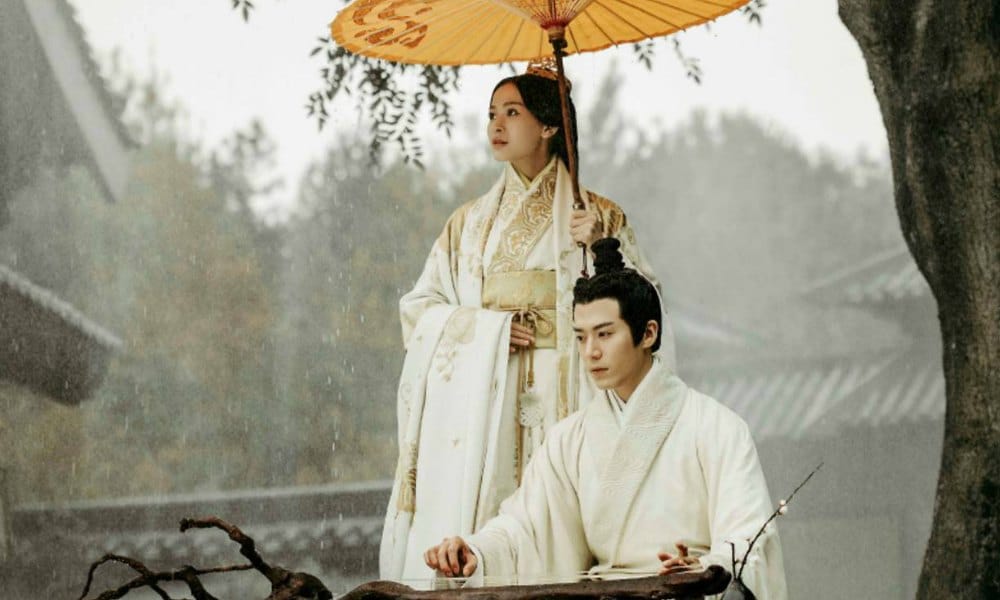
First published
From beautiful costume series to suspenseful war-themed productions – these are the most popular TV dramas in China this season, an overview by What’s on Weibo.
For newer articles on Chinese TV dramas, please check our overview here!
China has one of the most booming TV drama industries in the world, with dozens of new dramas being released every month, drawing in millions of viewers through the country’s most popular online video streaming platforms.
We’ve compiled a top ten of the most popular Chinese TV dramas of this moment, based on the current popular charts of the leading websites in Chinese online video, including Tencent Video, iQiyi, Sohu, Youku, LeTV, 360kan, Sogou Video, along with Baidu’s and Weibo’s popular TV drama charts.
Please note that this list has been compiled by combining the top-ranking lists of this moment. And we have chosen to exclude popular drama series that already made it in our previous top-ten lists (here, here, here), despite their ongoing popularity.
Most of these series are available for viewing online, some also with English subtitles. If you need a VPN to circumvent any geo restrictions, we recommend either NordVPN or ExpressVPN to do so. Note: also see our Top 30 of all-time classic Chinese TV Dramas here!
Here we go:
#10 Mystery of Antiques 古董局中局
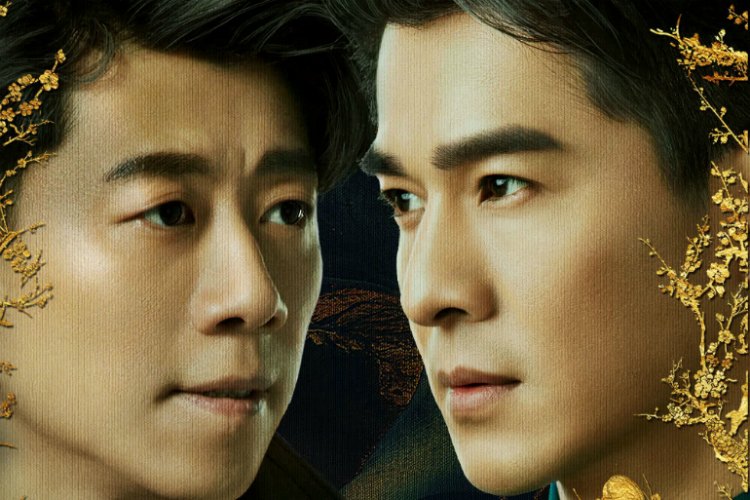
China Mainland
Chinese title: Gǔdǒng jú zhōng jú 古董局中局
Genre: Suspense, Mystery
Directed by: Wu Bai (五百) aka Guo Shubo (郭书博), Yu Qing (余庆)
Episodes: 36, December 2018, Tencent Video
Mystery of Antiques is an adaption of the like-named novel by award-winning novelist Ma Boyan (马伯庸). The main character in the drama series is played by Xia Yu (夏雨), who previously won awards for acting at various film festivals from Venice to Beijing, and from Taiwan to Singapore.
The series currently ranks fourth on Baidu’s most popular drama list, and seventh on the 360kan most popular series rankings.
The drama tells the story of the ordinary small antique shop owner, Xu Yuan (Xia Yu), who comes from a family of antique traders. One day, a visitor coming to the shop brings Xu into a conspiracy that goes beyond his wildest dreams and links him to a legendary treasure. It is the start of a dangerous and tumultuous journey, in which Xu does all he can to clear his family’s name and change his fate.
On Weibo, the official account of the series has over 20.000 followers.
The show, in Chinese, is available on QQ.
#9 Forty Years We Walked 我们的四十年

China Mainland
Chinese title: Wǒmen de sìshí nián 我们的西十年
Genre: Coming of age
Directed by: Wang Zi (王梓)
Episodes: 60, November 2018, Jiangsu TV, iQiyi, Tencent Video, Sogou Video, Mango TV, LeTV, Fun TV, PP TV, Youku
This coming of age story, featuring beautiful images of Beijing, is directed by Hunan-born filmmaker Wang Zi. Wang was born in 1986 and started his career as an actor in 2008. Some say that this series is very much based on Wang’s own experiences in his journey to becoming a director.
The series is currently the second most popular series on Sogou Video.
Forty Years We Walked tells the life story of Feng Dou, who falls in love with television and film from the first time he ever sees a TV at his friend’s house. In middle school, he becomes well-known together with his friend for collecting old tv-parts and building “new” televisions from them. Feng continues to pursue his passion for tv, setting up several businesses. However, as he Feng gets older, he starts to question his purpose in life until he realizes what it is he was always intended to do.
On Weibo, the official account of the series is currently nearing 20.000 followers.
The show is available on AsiaTVSub here or on Youtube here with Chinese subtitles.
#8 Well Intended Love 奈何BOSS要娶我

China Mainland
Chinese title: Nàihé BOSS yào qǔ wǒ (奈何BOSS要娶我)
Genre: Drama, Romance
Directed by: Wu Qiang (吴强)
Episodes: 20, January 2019, Sohu Video TV, Mango TV
Well Intended Love, that features the youngest cast within this overview, including Xu Kaiwei (徐开骋, 1990) and Simona Wang (王双, 1991), tells the love story between a wealthy man and mostly unknown young actress. The series is currently the most popular drama series on Sohu Video.
The series revolves around undiscovered actress Xia Lin who is suffering from leukemia. To afford a surgery that can save her life, she gets involved with the wealthy CEO Ling Yizhou. At the same time, Xia continues to pursue her career as an actress. Ling and Xia eventually get married and live a happy life together in secrecy until Ling finds out that Xia has a hidden agenda.
On Weibo, the official account of the series has over 190.000 followers.
See the complete series including English and Chinese subtitles on YouTube here.
#7 The Legend of Hao Lan 皓镧传
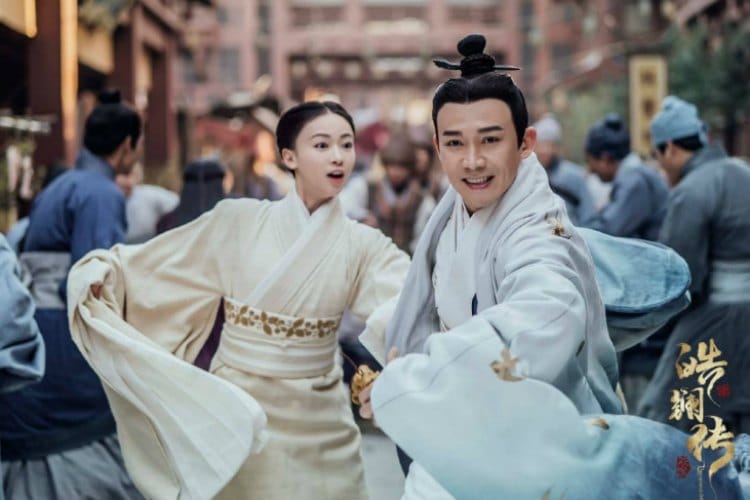
China Mainland
Chinese title: Hào lán chuán 皓镧传
Genre: Costume Drama, War, Romance, Historical Fiction
Directed by: Li Dachao (李达超)
Episodes: 62, January 2019, iQiyi
The historical drama The Legend of Hao Lan, starring Wu Jinyan (吴谨言), Mao Zijin (茅子俊), and Nie Yuan (聂远), chronicles the rise of Li Hao Lan to become the Empress Dowager of the Qin dynasty, after a long drawn battle between Zhao and Qin, towards the end of the Warring States period (475–221 BC).
The series is currently ranked third most popular series on 360kan and fourth most popular on iQiyi. Viewers of the latter evaluate the series with an average of 7.0.
Its popularity shows that historical drama is still very much booming in China’s drama industry. Recently, state media critique on period costume dramas that focus on conflicts in the imperial court became a hot topic on Chinese social media. The criticism singled out Yanxi Palace in particular, a show that was then canceled on TV for its “negative impacts,” signaling heightened censorship on Chinese costume dramas.
For now, however, The Legend of Hao Lan is going strong – and it stars the same main characters (Wu Jinyan and Nie Yuan). It depicts the story of the brave woman Li Hao Lan, daughter of Imperial censor Li He of Zhao state, who gets framed by her stepmother and is sold as a slave to Lu Buwei. Lu later presents her as a gift to Sun Yiren, a Qin royal that resides in Zhao as a hostage. As Li and Lu arrive in the royal Zhao palace, they unite and start their battle for power.
On Weibo, the official account of the series has over 40.000 followers.
See the complete series including Chinese subtitles here. Also available on Viki (incl. English subtitles).
#6 Candle in the Tomb: The Wrath of Time 鬼吹灯之怒晴湘西
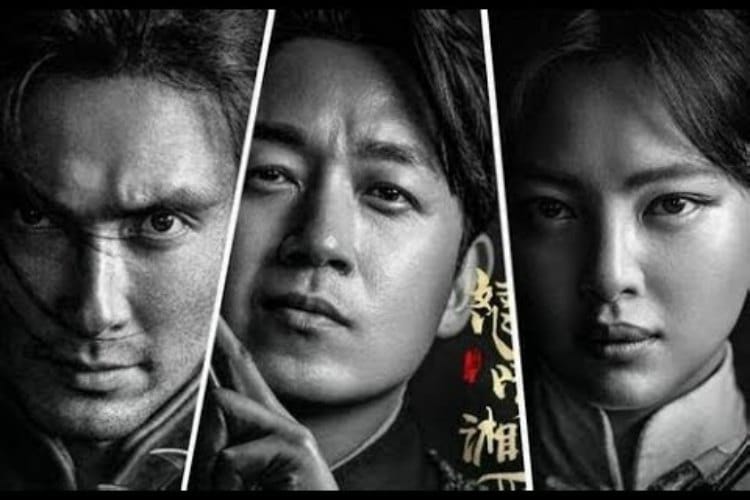
China Mainland
Chinese title: Guǐ chuīdēng zhī nù qíng xiāngxī (鬼吹灯之怒晴湘西)
Genre: Adventure, Suspense
Directed by: Fei Zhengxiang (费振翔), supervised by Guan Hu (管虎)
Episodes: 21, January 2019, Tencent Video
The Wrath of Time is the third season in the fictional Candle in the Tomb series, an adaption from the novels by Zhang Muye. The series chronicles the adventures of a gang of tomb raiders as they excavate the truth behind a mysterious curse. Previous seasons were Candle in the Tomb: Mu Ye Gui Shi (鬼吹灯之牧野诡事) and Candle in the Tomb: The Weasel Grave (鬼吹灯之黄皮子坟). Despite this series being the third season, it’s not really necessary to see the first series to understand the third season.
The series, starring Pan Yueming (潘粤明), Gao Weiguang (高伟光), and Xin Yulei, currently ranks third most popular drama series on Tencent Video scoring a 9.3, and fourth most popular serie on 360kan.
This third season of the Candle in the Tomb series is set in a time when the warlords are fighting for power and bring disaster upon the people. With the purpose of finding the ancient tombs from the Yuan dynasty, tomb raider Chen Yulou and warlord Luo Laowai embark on a journey to the Xiangxi Mountains. On their way, they meet Zhe Gushao, who is set on finding a pearl that will end the spell upon his clan. Despite the mutual suspicion of each other’s motives, Chen and Zhe rely on each other to get to their destination.
The third season does not have an official account on Weibo, however that the series is quite popular can be seen from the hashtag “Candle in the Tomb: The Wrath of Time” (#鬼吹灯之怒晴湘西#) which already got over 690 million views, and received more than 2.3 million comments on Weibo.
See the complete series including English and Chinese subtitles here.
#5 Behind the Scenes 幕后之王

China Mainland
Chinese title: Mùhòu zhī wáng (Mùhòu zhī wáng)
Genre: Drama, Romance
Directed by: Li Jun (李骏)
Episodes: 42, January 2019, Youku TV, Dragon TV, Beijing TV
Behind the Scenes, starring Zhou Dongyu (周冬雨) and Luo Jin (罗晋), is currently ranking second place on Weibo’s top ten most popular TV dramas, and third on Youku’s top 10 TV drama series.
The series revolves around ambitious student Bu Xiaogu and the famous producer Chun Yuqiao. Bu is thrilled when she is given the opportunity to work with the man she greatly admires. But she quickly discovers that he is nothing like she imagined. With her hopes and dreams shattered, Bu gets involved in an accident. Chun unexpectedly takes on the sole responsibility for the accident, setting off a special relationship between the two.
On Weibo, the official account of the series has over 80.000 followers
See the complete series including Chinese subtitles here.
#4 Spy Hunter 天衣无缝

China Mainland
Chinese title: Tiānyīwúfèng (天衣无缝)
Genre: Action, Detective
Directed by: Li Lu (李路)
Episodes: 48, January 2019, Zhejiang TV, Jiangsu TV, Tencent Video, Youku, iQiyi, Mango TV
Spy Hunter, starring Lu Yi (陆毅) as one of the main characters, currently ranks second most popular drama series on both 360kan and iQiyi.
This fictional story takes place in the spring of 1931 when the Central Committee of the Communist Party of China is establishing logistic bases in several big cities. Two Special service teams try to establish a new secret underground route and depot. But one day, their secret base in Tianjin is exposed, and the life of agent Wan is sacrificed. In the name of justice, Wan’s brother goes looking for the truth behind his brother’s death.
On Weibo, the official account of the series has approximately 50.000 followers.
See the complete series including English and Chinese subtitles here.
#3 I Will Never Let You Go 小女花不弃

China Mainland
Chinese title: Xiǎonǚ huā bu qì (小女花不弃)
Genre: Costume Drama, Fantasy, Adventure
Directed by: Cha Chuanyi (查传谊)
Episodes: 51, January 2019, iQiyi, Tencent Video, Youku, PPTV
I’ll Never Let You Go is an adaptation of the like-named novel by Zhuang Zhuang (桩桩). The series stars many famous actors including Ariel Lin (林依晨), Lin Bohong (林柏宏), and Zhang Binbin aka Vin (张彬彬).
On Tencent Video the series currently occupies second place in their most popular drama series hotlist, scoring an average of 8.2. And also on Weibo, Youku, and 360kan, the series holds a position in the top five.
I’ll Never Let You Go is a coming-of-age story revolving around a young with a unique gift, who wanders the world alone after her entire family was killed to protect the girl’s special gift. One day, the girl meets a courageous masked man who saves her life, after which they fall in love. But everything turned around when the girl discovers who the man she loves really is.
On Weibo, the verified Weibo page of the series has over 4.6 million followers, making it the most popular series on Weibo of this list.
See the complete series with Chinese subtitles here. Also available on Viki (including English subtitles).
#2 Anti-Japanese 荡寇

China Mainland
Chinese title: Dàng kòu 荡寇
Genre: Drama, War, History
Directed by: Jiao Xiaoyu (焦晓雨)
Episodes: 60, November 2016, Guizhou TV, iQiyi, Sohu TV, PP TV, Youku
This TV drama, that has the remarkable English title ‘Anti-Japanese‘ (the original Chinese title roughly translates as ‘sweeping away the enemy’) was first aired by Hunan TV in November of 2016. Since then, it was broadcasted by at least eight different television stations and platforms.
The most recent rebroadcast started on January 19, 2019, and the numbers show that people still can’t get enough of the drama. On iQiyi, the series currently ranks first place, and on Sohu and LeTV the series ranks second and fourth place respectively.
The TV drama is set at the start of the War of Resistance again Japan (1937-1945). When an intelligence team of the Communist Party finds out about a box with classified information regarding the development chemical and biological weapons that is sent out by the Japanese army, Yang Erhu is sent to stop their evil plans and to protect his country.
See the complete series including Chinese subtitles here.
#1 The Story Of Minglan 知否知否应是绿肥红瘦
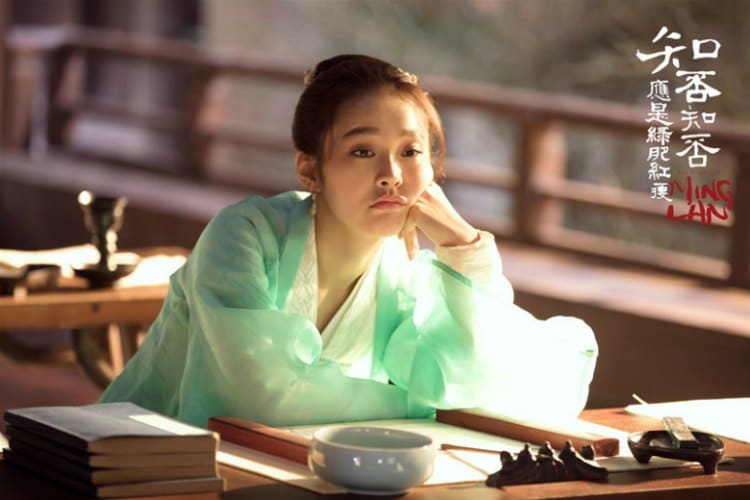
China Mainland
Chinese title: Zhī fǒu zhī fǒu yīng shì lǜféi hóng shòu (知否知否应是绿肥红瘦)
Genre: Historical fiction, Family, Politics
Directed by: Zhang Kaizhou (张开宙)
Episodes: 73, December 2018, iQiyi, Tencent Video, Youku, Youtube, Hunan TV
The fictional Story of Minglan, starring Zhao Liying (赵丽颖) and William Feng (冯绍峰) as main characters, is an adapted screenplay a novel by Chinese author Zheng Yi (郑怡) aka Guanxin Zeluan (关心则乱).
The series currently dominates the drama top charts, occupying the first place on Tencent Video, Youku, Baidu, Weibo, Sogou Video and 360kan.
The story of Minglan tells the coming of age story of an intelligent concubine daughter that has to grow up dealing with her unkind stepmother, an indifferent father, and unreasonable sisters.
Minglan learns to hide her skills and true intentions in order to survive until she meets Gu Tingyu, and the two fall in love. After Gu becomes a powerful official, and the two get married, Minglan rises to prominence.
On Weibo, the official account of the series has nearly 1.7 million followers.
See the complete series including Engish and Chinese subtitles here.
By Gabi Verberg
Spotted a mistake or want to add something? Please let us know in comments below or email us.
©2019 Whatsonweibo. All rights reserved. Do not reproduce our content without permission – you can contact us at info@whatsonweibo.com
Gabi Verberg is a Business graduate from the University of Amsterdam who has worked and studied in Shanghai and Beijing. She now lives in Amsterdam and works as a part-time translator, with a particular interest in Chinese modern culture and politics.

China Arts & Entertainment
“Old Bull Eating Young Grass”: 86-Year-Old Chinese Painter Fan Zeng Marries 36-Year-Old Xu Meng
Online reactions to the news of Fan’s marriage to Xu Meng, his fourth wife, reveal that the renowned artist is not particularly well-liked among Chinese netizens.
Published
1 week agoon
April 18, 2024
The recent marriage announcement of the renowned Chinese calligrapher/painter Fan Zeng and Xu Meng, a Beijing TV presenter 50 years his junior, has sparked online discussions about the life and work of the esteemed Chinese artist. Some netizens think Fan lacks the integrity expected of a Chinese scholar-artist.
Recently, the marriage of a 86-year-old Chinese painter to his bride, who is half a century younger, has stirred conversations on Chinese social media.
The story revolves around renowned Chinese artist, calligrapher, and scholar Fan Zeng (范曾, 1938) and his new spouse, Xu Meng (徐萌, 1988). On April 10, Fan announced their marriage through an online post accompanied by a picture.
In the picture, Fan is seen working on his announcement in calligraphic form.

Fan Zeng announces his marriage on Chinese social media.
In his writing, Zeng shares that the passing of his late wife, three years ago, left him heartbroken, and a minor stroke also hindered his work. He expresses gratitude for Xu Meng’s care, which he says led to his physical and mental recovery. Zeng concludes by expressing hope for “everlasting harmony” in their marriage.
Fan Zeng is a calligrapher and poet, but he is primarily recognized as a contemporary master of traditional Chinese painting. Growing up in a well-known literary family, his journey in art began at a young age. Fan studied under renowned mentors at the Academy of Fine Arts in Beijing, including Wu Zuoren, Li Keran, Jiang Zhaohe, and Li Kuchan.
Fan gained global acclaim for his simple yet vibrant painting style. He resided in France, showcased his work in numerous exhibitions worldwide, and his pieces were auctioned at Sotheby’s and Christie’s in the 1980s.[1] One of Fan’s works, depicting spirit guardian Zhong Kui (钟馗), was sold for over 6 million yuan (828,000 USD).

Zhong Kui in works by Fan Zeng.
In his later years, Fan Zeng transitioned to academia, serving as a lecturer at Nankai University in Tianjin. At the age of 63, he assumed the role of head of the Nankai University Museum of Antiquities, as well as holding various other positions from doctoral supervisor to honorary dean.
By now, Fan’s work has already become part of China’s twentieth-century art history. Renowned contemporary scholar Qian Zhongshu once remarked that Fan “excelled all in artistic quality, painting people beyond mere physicality.”
A questionable “role model”
Fan’s third wife passed away in 2021. Later, he got to know Xu Meng, a presenter at China Traffic Broadcasting. Allegedly, shortly after they met, he gifted her a Ferrari, sparking the beginning of their relationship.

A photo of Xu and her Hermes Birkin 25 bag has also been making the rounds on social media, fueling rumors that she is only in it for the money (the bag costs more than 180,000 yuan / nearly 25,000 USD).
On Weibo, reactions to the news of Fan’s marriage to Xu Meng, his fourth wife, reveal that the renowned artist is not particularly well-liked among netizens. Despite Fan’s reputation as a prominent philanthropist, many perceive his recent marriage as yet another instance of his lack of integrity and shamelessness.

Fan Zeng and Xu Meng. Image via Weibo.
One popular blogger (@好时代见证记录者) sarcastically wrote:
“Warm congratulations to the 86-year-old renowned contemporary erudite scholar and famous calligrapher Fan Zeng, born in 1938, on his marriage to Ms Xu Meng, a 50 years younger 175cm tall woman who is claimed to be China’s number one golden ratio beauty. Mr Fan Zeng really is a role model for us middle-aged greasy men, as it makes us feel much less uncomfortable when we’re pursuing post-90s youngsters as girlfriends and gives us an extra shield! Because if contemporary Confucian scholars [like yourself] are doing this, then we, as the inheritors of Confucian culture, can surely do the same!“
Various people criticize the fact that Xu Meng is essentially just an aide to Fan, as she can often be seen helping him during his work. One commenter wrote: “Couldn’t he have just hired an assistant? There’s no need to turn them into a bed partner.”
Others think it’s strange for a supposedly scholarly man to be so superficial: “He just wants her for her body. And she just wants him for his inheritance.”
“It’s so inappropriate,” others wrote, labeling Fan as “an old bull grazing on young grass” (lǎoniú chī nèncǎo 老牛吃嫩草).
Fan is not the only well-known Chinese scholar to ‘graze on young grass.’ The famous Chinese theoretical physicist Yang Zhenning (杨振宁, 1922), now 101 years old, also shares a 48-year age gap with his wife Weng Fen (翁帆). Fan, who is a friend of Yang’s, previously praised the love between Yang and Weng, suggesting that she kept him youthful.

Older photo posted on social media, showing Fan attending the wedding ceremony of Yang Zhenning and his 48-year-younger partner Weng Fen.
Some speculate that Fan took inspiration from Yang in marrying a significantly younger woman. Others view him as hypocritical, given his expressions of heartbreak over his previous wife’s passing, and how there’s only one true love in his lifetime, only to remarry a few years later.
Many commenters argue that Fan Zeng’s conduct doesn’t align with that of a “true Confucian scholar,” suggesting that he’s undeserving of the praise he receives.
“Mr. Wang from next door”
In online discussions surrounding Fan Zeng’s recent marriage, more reasons emerge as to why people dislike him.
Many netizens perceive him as more of a money-driven businessman rather than an idealistic artist. They label him as arrogant, critique his work, and question why his pieces sell for so much money. Some even allege that the only reason he created a calligraphy painting of his marriage announcement is to profit from it.
Others cast doubt on his status as a Chinese calligraphy ‘grandmaster,’ noting that his calligraphy style is not particularly impressive and may contain typos or errors. His wedding announcement calligraphy appears to blend traditional and simplified characters.

Netizens have pointed out what looks like errors or typos in Fan’s calligraphy.
Another source of dislike stems from his history of disloyalty and his feud with another prominent Chinese painter, Huang Yongyu (黄永玉). Huang, who passed away in 2023, targeted Fan Zeng in some of his satirical paintings, including one titled “When Others Curse Me, I Also Curse Others” (“人骂我,我亦骂人”). He also painted a parrot, meant to mock Fan Zeng’s unoriginality.

Huang Yongyu made various works targeting Fan Zeng.
In retaliation, Fan produced his own works mocking Huang, sparking an infamous rivalry in the Chinese art world. The two allegedly almost had a physical fight when they ran into each other at the Beijing Hotel.

Fan Zeng mocked Huang Yongyu in some of his works.
Fan and Huang were once on good terms though, with Fan studying under Huang at the Central Academy of Fine Arts in Beijing. Through Huang, Fan was introduced to the renowned Chinese novelist Shen Congwen (沈从文, 1902-1988), Huang’s first cousin and lifelong friend. As Shen guided Fan in his studies and connected him with influential figures in China’s cultural circles, their relationship flourished.
However, during the Cultural Revolution, when Shen was accused of being a ‘reactionary,’ Fan Zeng turned against him, even going as far as creating big-character posters to criticize his former mentor.[2] This betrayal not only severed the bond between Shen and Fan but also ended Fan’s friendship with Huang, and it is still remembered by people today.
Fan Zeng’s behavior towards another former mentor, the renowned painter Li Kuchan (李苦禪, 1899-1983), was also controversial. Once Fan gained fame, he made it clear that he no longer respected Li as his teacher. Li later referred to Fan as “a wolf in sheep’s clothes,” and apparently never forgave him. Although the exact details of their falling out remain unclear, some blame Fan for exploiting Li to further his own career.
There are also some online commenters who call Fan Zeng a “Mr Wang from next door” (隔壁老王), a term jokingly used to refer to the untrustworthy neighbor who sleeps with one’s wife. This is mostly because of the history of how Fan Zeng met his third wife.
Fan’s first wife was the Chinese female calligrapher Lin Xiu (林岫), who came from a wealthy family. During this marriage, Fan did not have to worry about money and focused on his artistic endeavours. The two had a son, but the marriage ended in divorce after a decade. Fan’s second wife was fellow painter Bian Biaohua (边宝华), with whom he had a daughter. It seems that Bian loved Fan much more than he loved her.
It is how he met his third wife that remains controversial to this day. Nan Li (楠莉), formerly named Zhang Guiyun (张桂云), was married to performer Xu Zunde (须遵德). Xu was a close friend of Fan, and helped him out when Fan was still poor and trying to get by while living in Beijing’s old city center.
Wanting to support Fan’s artistic talent, Xu let Fan Zeng stay over, supported him financially, and would invite him for meals. Little did he know that while Xu was away to work, Fan enjoyed much more than meals alone; Fan and Xu’s wife engaged in a secret decade-long affair.
When the affair was finally exposed, Xu Zunde divorced his wife. Still, they would use his house to meet and often locked him out. Three years later, Nan Li officially married Fan Zeng. Xu not only lost his wife and friend but also ended up finding his house emptied, his two sons now bearing Fan’s surname.
When Nan Li passed away in 2021, Fan Zeng published an obituary that garnered criticism. Some felt that the entire text was actually more about praising himself than focusing on the life and character of his late wife, with whom he had been married for forty years.

Fan Zeng and his four wives
An ‘old pervert’, a ‘traitor’, a ‘disgrace’—there are a lot of opinions circulating about Fan that have come up this week.
Despite the negativity, a handful of individuals maintain a positive outlook. A former colleague of Xu Meng writes: “If they genuinely like each other, age shouldn’t matter. Here’s to wishing them a joyful marriage.”
By Manya Koetse
[1]Song, Yuwu. 2014. Biographical Dictionary of the People’s Republic of China. United Kingdom: McFarland & Company, 76.
[2]Xu, Jilin. 2024. “Xu Jilin: Are Shen Congwen’s Tears Related to Fan Zeng?” 许纪霖:沈从文的泪与范曾有关系吗? The Paper, April 15. https://www.thepaper.cn/newsDetail_forward_27011031. Accessed April 17, 2024.
Independently reporting China trends for over a decade. Like what we do? Support us and get the story behind the hashtag by subscribing:
Spotted a mistake or want to add something? Please let us know in comments below or email us. First-time commenters, please be patient – we will have to manually approve your comment before it appears.
©2024 Whatsonweibo. All rights reserved. Do not reproduce our content without permission – you can contact us at info@whatsonweibo.com.
China Memes & Viral
Chengdu Disney: The Quirkiest Hotspot in China
How a senior activity park in Chengdu was ‘Disneyfied’ and became a viral hotspot.
Published
2 weeks agoon
April 12, 2024
How did a common park turn into a buzzing hotspot? By mixing online trends with real-life fun, blending foreign styles with local charm, and adding a dash of humor and absurdity, Chengdu now boasts its very own ‘Chengdu Disney’. We explain the trend.
– By Manya Koetse, co-authored by Ruixin Zhang
Have you heard about Chengdu Disney yet? If not, it’s probably unlike anything you’d imagine. It’s not actually a Disney theme park opening up in Chengdu, but it’s one of the city’s most viral hotspots these days.
What is now known as ‘Chengdu Disney’ all over the Chinese internet is actually a small outdoor park in a residential area in Chengdu’s Yulin area, which also serves as the local senior fitness activity center.
Crowds of young people are coming to this area to take photos and videos, hang out, sing songs, cosplay, and be part of China’s internet culture in an offline setting.
Once Upon a Rap Talent Show
The roots of ‘Chengdu Disney’ can be traced back to the Chinese hip-hop talent show The Rap of China (中国新说唱), where a performer named Nuomi (诺米), also known as Lodmemo, was eliminated by Chinese rapper Boss Shady (谢帝 Xièdì), one of the judges on the show.
Nuomi felt upset about the elimination and a comment made by his idol mentor, who mistakenly referred to a song Nuomi made for his ‘grandma’ instead of his grandfather. His frustration led to a viral livestream where he expressed his anger towards his participation in The Rap of China and Boss Shady.
However, it wasn’t only his anger that caught attention; it was his exaggerated way of speaking and mannerisms. Nuomi, with his Sichuan accent, repeatedly inserted English phrases like “y’know what I’m saying” and gestured as if throwing punches.
His oversized silver chain, sagging pants, and urban streetwear only reinforce the idea that Nuomi is trying a bit too hard to emulate the fashion style of American rappers from the early 2000s, complete with swagger and street credibility.

Lodmemo emulates the style of American rappers in the early 2000s, and he has made it his brand.
Although people mocked him for his wannabe ‘gangsta’ style, Nuomi embraced the teasing and turned it into an opportunity for fame.
He decided to create a diss track titled Xiè Tiān Xièdì 谢天谢帝, “Thank Heaven, Thank Emperor,” a word joke on Boss Shady’s name, which sounds like “Shady” but literally means ‘Thank the Emperor’ in Chinese. A diss track is a hip hop or rap song intended to mock someone else, usually a fellow musician.
In the song, when Nuomi disses Boss Shady (谢帝 Xièdì), he raps in Sichuan accent: “Xièdì Xièdì wǒ yào diss nǐ [谢帝谢帝我要diss你].” The last two words, namely “diss nǐ” actually means “to diss you” but sounds exactly like the Chinese word for ‘Disney’: Díshìní (迪士尼). This was soon picked up by netizens, who found humor in the similarity; it sounded as if the ‘tough’ rapper Nuomi was singing about wanting to go to Disney.

Nuomi and his diss track, from the music video.
Nuomi filmed the music video for this diss track at a senior activity park in Chengdu’s Yulin subdistrict. The music video went viral in late March, and led to the park being nicknamed the ‘Chengdu Disney.’
The particular exercise machine on which Nuomi performed his rap quickly became an iconic landmark on Douyin, as everyone eagerly sought to visit, sit on the same see-saw-style exercise machine, and repeat the phrase, mimicking the viral video.

What began as a homonym led to people ‘Disneyfying’ the park itself, with crowds of visitors flocking to the park, some dressed in Disney-related costumes.

This further developed the concept of a Chengdu ‘Disney’ destination, turning the park playground into the happiest place in Yulin.
Chengdu: China’s Most Relaxed Hip Hop Hotspot
Chengdu holds a special place in China’s underground hip-hop scene, thanks to its vibrant music culture and the presence of many renowned Chinese hip-hop artists who incorporate the Sichuan dialect into their songs and raps.
This is one reason why this ‘Disney’ meme happened in Chengdu and not in any other Chinese city. But beyond its musical significance, the playful spirit of the meme also aligns with Chengdu’s reputation for being an incredibly laid-back city.
In recent years, the pursuit of a certain “relaxed feeling” (sōngchígǎn 松弛感) has gained popularity across the Chinese internet. Sōngchígǎn is a combination of the word for “relaxed,” “loose” or “lax” (松弛) and the word for “feeling” (感). Initially used to describe a particular female aesthetic, the term evolved to represent a lifestyle where individuals strive to maintain a relaxed demeanor, especially in the face of stressful situations.
🌟 Attention!
For 11 years, What’s on Weibo has remained a 100% independent blog, fueled by my passion to write about China’s digital culture and online trends. Over a year ago, we introduced a soft paywall to ensure the sustainability of this platform. I’m grateful to all our loyal readers who’ve subscribed since 2022. Your support has been invaluable. But we need more subscribers to continue our work. If you appreciate our content and want to support independent China reporting, please consider becoming a subscriber. Your support keeps What’s on Weibo going strong!
The concept gained traction online in mid-2022 when a Weibo user shared a story of a family remaining composed when their travel plans were unexpectedly disrupted due to passport issues. Their calm and collected response inspired the adoption of the “relaxed feeling” term (also read here).
Central to embodying this sense of relaxation is being unfazed by others’ opinions and avoiding unnecessary stress or haste out of fear of judgment.
Nowadays, Chinese cities aim to foster this sense of sōngchígǎn. Not too long ago, there were many hot topics suggesting that Chengdu is the most sōngchí 松弛, the most relaxed city in China.
This sentiment is reflected in the ‘Chengdu Disney’ trend, which both pokes fun at a certain hip-hop aesthetic deemed overly relaxed—like the guys who showed up with sagging pants—and embraces a carefree, childlike silliness that resonates with the city’s character and its people.

Mocking sagging pants at ‘Chengdu Disney.’
Despite the influx of visitors to the Chengdu Disney area, authorities have not yet significantly intervened. Community notices urging respect for nearby residents and the presence of police officers to maintain order indicate a relatively hands-off approach. For now, it seems most people are simply enjoying the relaxed atmosphere.
Being Part of the Meme
An important aspect that contributes to the appeal of Chengdu Disney is its nature as an online meme, allowing people to actively participate in it.

Scenes from Chengdu Disney, images via Weibo.
China has a very strong meme culture. Although there are all kinds of memes, from visual to verbal, many Chinese memes incorporate wordplay. In part, this has to do with the nature of Chinese language, as it offers various opportunities for puns, homophones, and linguistic creativity thanks to its tones and characters.
The use of homophones on Chinese social media is as old as Chinese social media itself. One of the most famous examples is the phrase ‘cǎo ní mǎ’ (草泥马), which literally means ‘grass mud horse’, but is pronounced in the same way as the vulgar “f*ck your mother” (which is written with three different characters).
In the case of the Chengdu Disney trend, it combines a verbal meme—stemming from the ‘diss nǐ’ / Díshìní homophone—and a visual meme, where people gather to pose for videos/photos in the same location, repeating the same phrase.
Moreover, the trend bridges the gap between the online and offline worlds, as people come together at the Chengdu playground, forming a tangible community through digital culture.
The fact that this is happening at a residential exercise park for the elderly adds to the humor: it’s a Chengdu take on what “urban” truly means. These colorful exercise machines are a common sight in Chinese parks nationwide and are actually very mundane. Transforming something so normal into something extraordinary is part of the meme.

A 3D-printed model version of the exercise equipment featured in Nuomi’s music video.
Lastly, the incorporation of the Disney element adds a touch of whimsy to the trend. By introducing characters like Snow White and Mickey Mouse, the trend blends American influences (hip-hop, Disney) with local Chengdu culture, creating a captivating and absurd backdrop for a viral phenomenon.
For some people, the pace in which these trends develop is just too quick. On Weibo, one popular tourism blogger (@吴必虎) wrote: “The viral hotspots are truly unpredictable these days. We’re still seeing buzz around the spicy hot pot in Gansu’s Tianshui, meanwhile, a small seesaw originally meant for the elderly in a residential community suddenly turns into “Chengdu Disneyland,” catching the cultural and tourism authorities of Sichuan and even Shanghai Disneyland off guard. Netizens are truly powerful, even making it difficult for me, as a professional cultural tourism researcher, to keep up with them.”
By Manya Koetse, co-authored by Ruixin Zhang
Independently reporting China trends for over a decade. Like what we do? Support us and get the story behind the hashtag by subscribing:
Spotted a mistake or want to add something? Please let us know in comments below or email us. First-time commenters, please be patient – we will have to manually approve your comment before it appears.
©2024 Whatsonweibo. All rights reserved. Do not reproduce our content without permission – you can contact us at info@whatsonweibo.com.
Subscribe

Weibo Watch: The Battle for the Bottom Bed

Zara Dress Goes Viral in China for Resemblance to Haidilao Apron

“Old Bull Eating Young Grass”: 86-Year-Old Chinese Painter Fan Zeng Marries 36-Year-Old Xu Meng

Chengdu Disney: The Quirkiest Hotspot in China

Where to Eat and Drink in Beijing: Yellen’s Picks

The ‘Two Sessions’ Suggestions: Six Proposals Raising Online Discussions

Top 9 Chinese Movies to Watch This Spring Festival Holiday

Party Slogan, Weibo Hashtag: “The Next China Will Still Be China”

From Pitch to Politics: About the Messy Messi Affair in Hong Kong (Updated)

Looking Back on the 2024 CMG Spring Festival Gala: Highs, Lows, and Noteworthy Moments

Two Years After MU5735 Crash: New Report Finds “Nothing Abnormal” Surrounding Deadly Nose Dive

More than Malatang: Tianshui’s Recipe for Success

“Old Bull Eating Young Grass”: 86-Year-Old Chinese Painter Fan Zeng Marries 36-Year-Old Xu Meng

In Hot Water: The Nongfu Spring Controversy Explained

Chengdu Disney: The Quirkiest Hotspot in China
Get in touch
Would you like to become a contributor, or do you have any tips or suggestions? Get in touch here!
Popular Reads
-

 China Insight2 months ago
China Insight2 months agoThe ‘Two Sessions’ Suggestions: Six Proposals Raising Online Discussions
-

 China Arts & Entertainment3 months ago
China Arts & Entertainment3 months agoTop 9 Chinese Movies to Watch This Spring Festival Holiday
-

 China Media2 months ago
China Media2 months agoParty Slogan, Weibo Hashtag: “The Next China Will Still Be China”
-

 China World2 months ago
China World2 months agoFrom Pitch to Politics: About the Messy Messi Affair in Hong Kong (Updated)





Pieter
May 30, 2019 at 11:01 am
Typo: Chinese title: Wǒmen de sìshí nián 我们的西十年
kc
September 21, 2019 at 5:10 pm
great list thanks